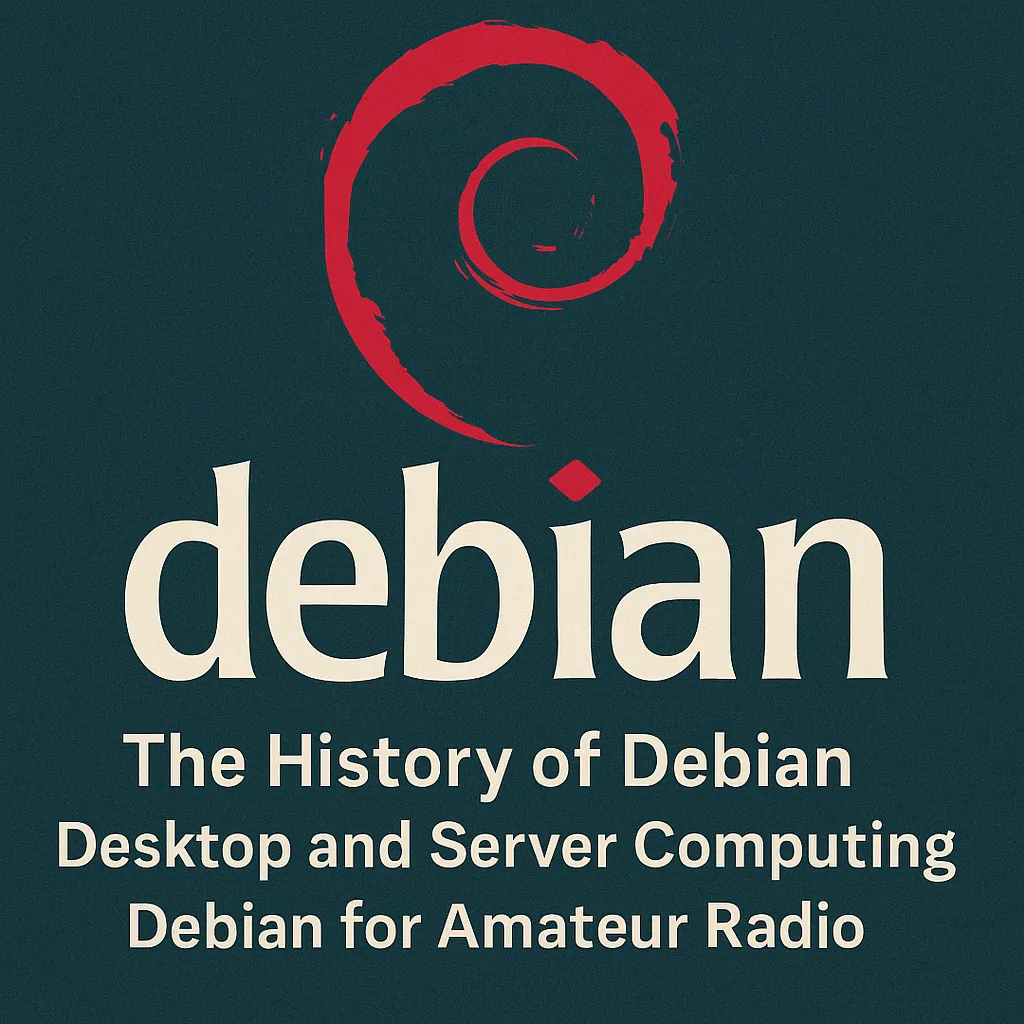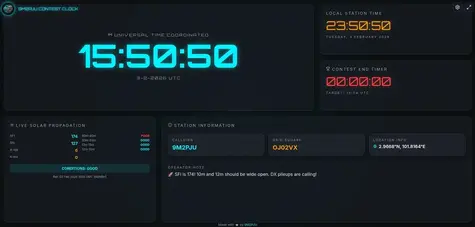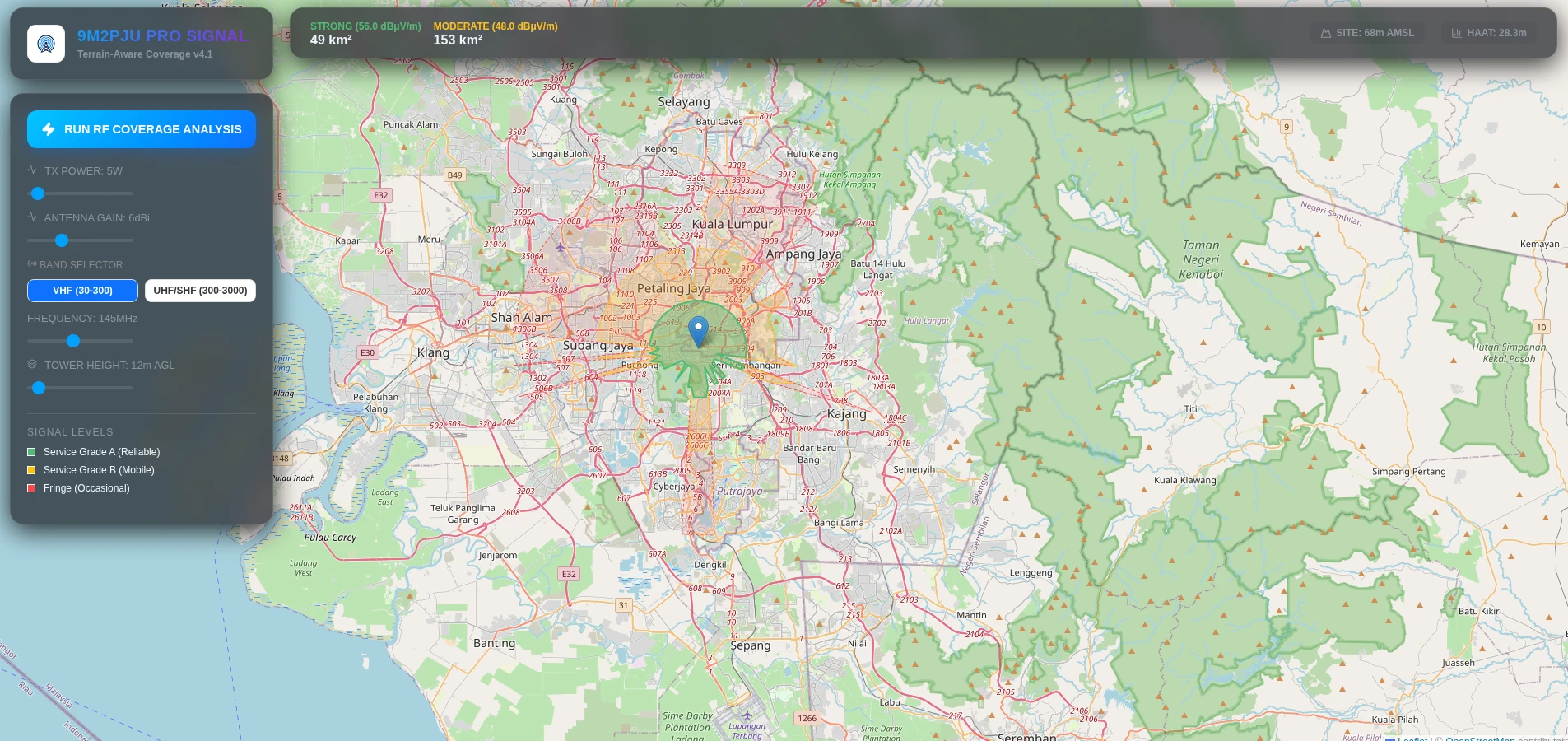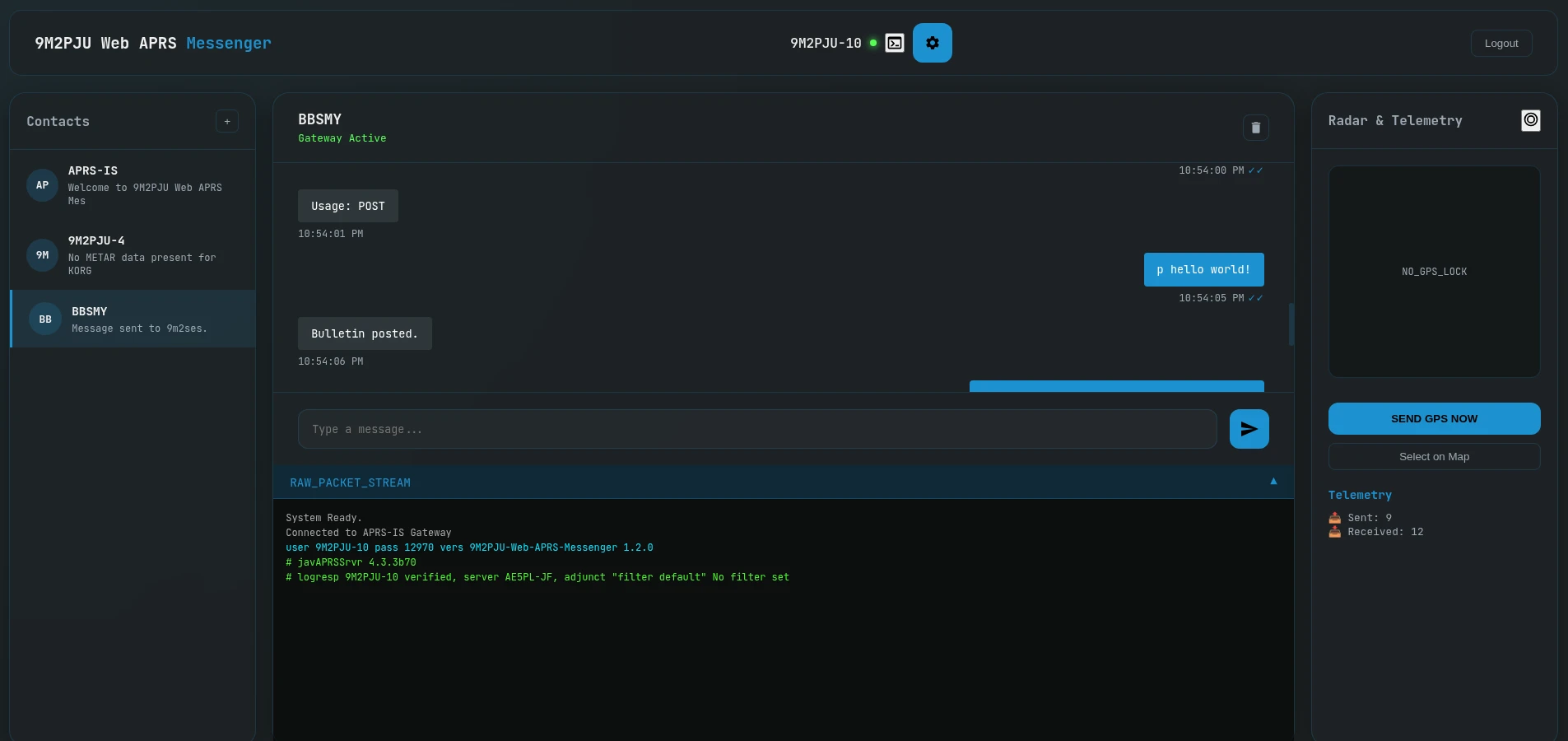amateur radio
debian
free open source software
ham radio
linux
open source operating system
AmateurRadio, APRS, debian, debiancommunity, debiandistro, debianhamradio, debianlinux, DigitalModes, fldigi, foss, GNU, hamradio, IoT, linux, linuxdesktop, linuxserver, lora, opensource, packetradio, RaspberryPi, remotestation, SysAdmin, WSJTX
9M2PJU
0 Comments
The Story of Debian: From Hacker Roots to Global Impact
🌍 Introduction: What Makes Debian So Important?
If you’re using Linux today — whether on a desktop, server, or embedded device — there’s a good chance the foundation of your system can be traced back to Debian. Debian is one of the oldest, most respected, and most influential GNU/Linux distributions ever created. It has quietly shaped the digital world around us — from powering large-scale web servers and scientific clusters to forming the basis of popular distributions like Ubuntu, Raspbian, and countless others.
But Debian is more than just a technical achievement. It is a social, ethical, and political project — one rooted in the ideals of freedom, transparency, and community governance.
This article takes a detailed journey through Debian’s origins, evolution, and its unique capabilities in desktop and server environments — and highlights why Debian is a perfect match for amateur radio operators.
🏛️ The Origin of Debian: A Manifesto Becomes a Movement
In the early 1990s, the Linux kernel was still a new and evolving project. While Linus Torvalds was actively developing the kernel itself, various individuals and small groups were creating their own Linux distributions. These early distributions were often difficult to maintain, poorly documented, and inconsistent.
Enter Ian Murdock, a young computer science student at Purdue University. On August 16, 1993, he released the Debian Manifesto, which laid out a bold vision: a completely free, open, and community-developed operating system that adhered to the values of the Free Software Foundation.
He named it “Debian” — a portmanteau of his name and that of his then-girlfriend, Debra.
From the beginning, Debian sought to be different:
- It would not be controlled by a single person or company.
- It would emphasize openness, stability, and quality.
- It would be built by volunteers and for the community.
Debian was not only a software project — it was a social contract, a movement, and a model for how free software could be built cooperatively.
📜 Historical Milestones: Debian Through the Years
1993–1995: The Early Days
Debian 0.91 was the first version that gained traction, introducing the .deb package format and the dpkg package manager. From the start, Debian aimed to be modular, reliable, and secure.
1996: The Birth of APT
One of Debian’s greatest innovations was the introduction of APT (Advanced Package Tool) — a front-end that made it easier to install, upgrade, and remove software while managing dependencies automatically. This was a huge leap over what other distributions offered at the time.
Late 1990s: A Social and Ethical Framework
Debian formalized its values through documents like:
- The Debian Social Contract
- The Debian Free Software Guidelines (DFSG)
- The Debian Constitution
These were radical moves. Debian became the first Linux distribution to explicitly define its governance, its commitment to users, and its ethical foundations.
2000s–2010s: Becoming a Foundation for the World
Debian’s popularity surged. It became the base for:
- Ubuntu
- Raspbian (now Raspberry Pi OS)
- Kali Linux
- Linux Mint (Debian Edition)
- Countless server deployments in enterprises and universities
Debian evolved to support multiple CPU architectures, introduced udev for dynamic device management, and transitioned to systemd in later years for improved boot and service handling.
Today, Debian is developed by over 1,000 active developers, with tens of thousands of contributors and mirror servers in almost every country on Earth.
🖥️ Debian on the Desktop: A Powerhouse of Possibility
Although Debian has a reputation as a server distribution, it is equally capable as a desktop system, especially for users who value stability, freedom, and control.
Why Choose Debian for Desktop Computing?
1. Unmatched Stability
Debian’s “Stable” release is tested for months, sometimes years, before finalization. This makes it ideal for users who prioritize reliability over bleeding-edge features.
2. Custom Desktop Environments
Whether you prefer GNOME, KDE Plasma, XFCE, LXQt, Mate, Cinnamon, or even minimalist setups like i3wm, Debian allows full flexibility during installation.
3. Freedom From Bloatware
Unlike commercial operating systems that come pre-loaded with unnecessary software and background tracking, Debian installs only what you choose — nothing more.
4. Vast Software Library
With more than 59,000 precompiled packages, almost every piece of software you could need is available directly via apt. From graphic design and media editing to office work and development tools — Debian has it all.
5. Privacy and Security
Debian has no telemetry. It does not collect or transmit user data, ever. Plus, it receives security updates from a dedicated security team that supports each Stable release for five years or more.
6. Perfect for Developers and Hackers
Debian is an ideal workstation for programmers, sysadmins, researchers, and makers. It supports development tools in C, Python, Rust, Go, Java, and more — all easily installable through the package manager.
🧱 Debian as a Server: The Gold Standard of Stability
When it comes to deploying mission-critical applications, few operating systems are as trusted as Debian.
Why Debian Dominates Server Rooms
1. Long-Term Stability
Debian’s conservative release cycle ensures that servers can run for years without interruption, even through major upgrades.
2. Excellent Security Practices
Debian takes security seriously. With signed packages, trusted repositories, and an active security team, administrators can sleep better knowing their systems are protected.
3. Universal Hardware Support
From Raspberry Pis to enterprise-grade x86 servers, from old legacy boxes to modern ARM64 devices — Debian supports them all.
4. Container and Virtualization Ready
Debian is the default base image for Docker containers, is heavily used in cloud infrastructure, and runs perfectly on KVM, Xen, LXC, and VMware.
5. Flexible Roles
Debian can easily be configured as:
- Web server (Apache, NGINX)
- Mail server (Postfix, Dovecot)
- DNS server (BIND, Unbound)
- Database server (PostgreSQL, MySQL, MariaDB)
- File server (Samba, NFS)
- VPN (WireGuard, OpenVPN)
6. Efficient Resource Usage
Without bloated GUIs or unnecessary background services, Debian performs faster and lighter than most alternatives. It’s ideal for headless systems and energy-efficient servers.
📻 Debian for Amateur Radio Operators: A Perfect Match
How Debian Enhances Ham Radio Operations
1. Wide Selection of Ham Software
Debian’s repository includes a treasure trove of amateur radio tools:
- AX.25 and APRS:
ax25-tools,direwolf,xastir,aprx - Digital Modes:
flrig,fldigi,wsjtx,js8call,qsstv - Logging and Contesting:
tlf,xlog,cqrlog - Packet Radio and Winlink:
pat,linpac,soundmodem - Satellite Tracking:
gpredict
No need to compile from source — just install with apt.
2. Runs on Low-Power Devices
Debian is lightweight and can run on Raspberry Pi, Odroid, or old laptops — perfect for portable stations, field days, and emergency communications.
3. Custom Automation and Gateways
You can build your own:
- APRS iGate or Digipeater
- LoRa gateways
- Remote HF control stations
- Telemetry collection systems
With scripting and cron jobs, you can automate nearly everything.
4. Stable Uptime for Remote Stations
Need a node to run unattended in a rural area? Debian’s reputation for rock-solid uptime is exactly what hams need for off-grid repeaters, gateways, or remote logging setups.
5. Hackable and Modular
Debian doesn’t get in your way. You can build exactly the shack system you want — and even write your own software, drivers, or tools using Python, Bash, or C.
🎯 Conclusion: Why Debian Should Be Your OS of Choice
Whether you’re a sysadmin, hobbyist, student, ham radio operator, or casual Linux user, Debian has something for you.
- It’s ethically grounded, built by a global community, and entirely free.
- It powers desktops, laptops, servers, cloud platforms, and IoT devices with equal confidence.
- It respects your freedom, your time, and your intelligence.
- And for the amateur radio community, it is the perfect companion in the shack.
If you haven’t tried Debian yet, now’s the time. Download the ISO, write it to a USB drive, and join the movement that’s been quietly powering the internet, science, and innovation for over 30 years.
Debian isn’t just a Linux distro. It’s the soul of free software.







Post Comment